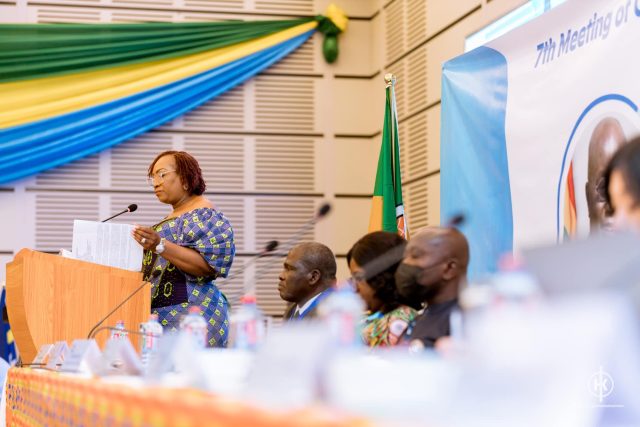About 77 percent of the total registered 76 trawlers operating in the country’s waters have been denied license renewals for failing to meet seaworthiness requirements, Fisheries and Aquaculture Development Minister (MoFAD) Mavis Hawa Koomson has revealed.
In July last year, the ministry issued a directive on specifications of gear to be used by industrial trawlers and vessels for fishing. The directive also includes ensuring safety of vessels operating in Ghana.
The objective of the gear specification is to avoid catching small pelagic fishes and allow juvenile fishes to escape through nets in order to replenish current depleting stocks.
Speaking at the 2023 Ocean Conference in Panama this month, Madam Koomson disclosed that only 25 trawlers out of the registered 76 have received seaworthiness licenses and are currently fishing. The remaining 51 have been banned from fishing in the country’s waters.
This was as a result of implementing these two measures, she said, adding: “I have personally and recently participated in port inspection of catches of industrial trawlers from sea trips and can confidently say there are no more catching of juvenile and small pelagic species by these trawlers.”
In order to maintain the gains, the minister said plans are being finalised to ensure that all industrial trawlers and tuna vessels licensed in Ghana are using electronic monitoring systems – with a pilot system starting in June this year.
Illegal, unreported, unregulated (IUU) fishing remains one of the greatest threats to marine ecosystems in Ghana due to its ability to undermine national and regional efforts to conserve and manage fish stocks.
The challenge has been contributing to depleting fish stocks and threatening marine biodiversity, livelihoods, exacerbating poverty, and worsening food insecurity.
The country loses over US$200million annually due to IUU fishing, data from the Environment and Natural Resource Research Initiative (ENRRI – EfD Ghana) has shown.
The country, according to the Environmental Justice Foundation (EJF), loses some US$50million each year to ‘saiko’ – the practice of trans-shipping fish at sea from industrial trawlers to specially adapted canoes, which has currently been brought under control by MoFAD.
Illegal fishing has a devastating cost on the region as the UN estimates that nearly 40 percent of all fish caught in West Africa are done so illegally, resulting in a loss of US$2.3billion annually.
Under Ghana’s laws, illegal fishing activities attract fines of between US$100,000 and US$2million, or a minimum of US$1million for taking on board juvenile fishes, using prohibited fishing gears or fishing in prohibited zones – e.g., the Inshore Exclusive Zone reserved for artisanal fishers. Minimum fines can increase to US$4million in the case of repeated offences.
However, many offenders are able to find alternatives to beat such harsh punishments.

















